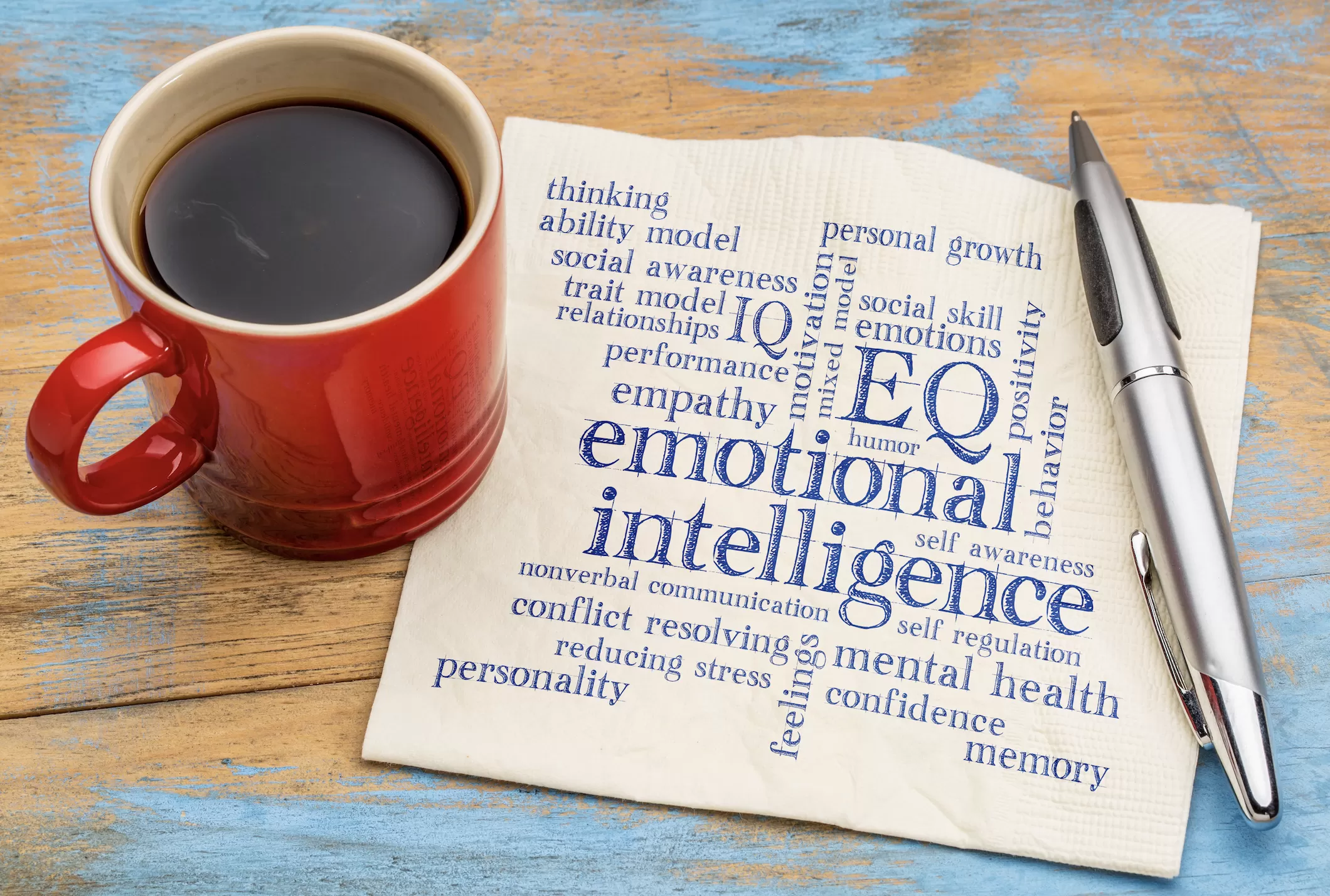Emotional Intelligence
Increasingly our education systems seem to focus on points, scores and achievements as a measure of success. Students who rack up a high enough score enter university for more outcomes testing towards attaining a high paying job. VET students concentrate their efforts on attaining skills that can lead directly to certificates and employment. You could be forgiven for thinking that "softer skills" are less important when in fact, they are the very skills that when developed, can engender higher levels of job success AND life satisfaction.
Harvard Business School research determined that our emotional quotient (EQ) counts for twice as much as IQ and technical skills combined in determining who will be successful.Emotional intelligence isn't new and there's plenty of research to support the fact that without it, people struggle to manage themselves and work in teams.
Emotional intelligence can be categorised into 5 vital areas - Self Awareness, Empathy, Motivation, Self Regulation and Social Skills.
As VET practitioners and educators, embedding these skills into our training practice can help students build resilience, develop rapport and connection with others, and deal with change.Self awareness is understanding "how we tick". What makes us think and do the things we do. What are our triggers, our strengths and weaknesses. Only when we have a good understanding of ourselves, can we take steps to develop the personal skills that will help us confidently forge a career and life that brings happiness and satisfaction.
Empathy is the key to connecting with others by mentally "walking a mile in their shoes". It's what drives us to support our colleagues and understand that a smile and helping hand is something we all need from time to time. Motivation is easy when we enjoy what we are doing but it's more important and more elusive, when the going gets tough. We need to be teaching our students to be resilient when they fail at something...... to get up, dust themselves off and have another go.
Self regulation is recognising and managing our thoughts, words and deeds even when we are emotionally charged, stressed or under pressure.
Our social skills impact the way others see and interact with us. Social cues and accepted patterns of behaviour exist in real and electonic interactions, and if we don't teach these to our students, they could be seriously disadvantaged in the workplace as well as potentially damaging personal relationships.It may be inappropriate to measure emotional intelligence in the same way that foundation skills are but perhaps all educators should be considering how to embed these skills into everything we teach.


